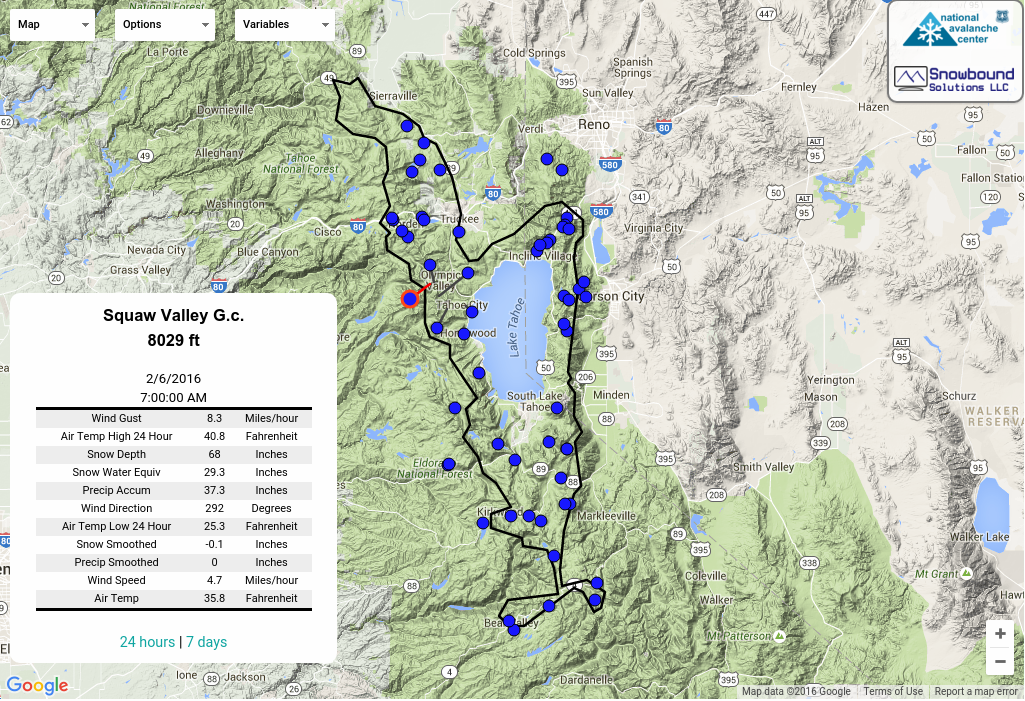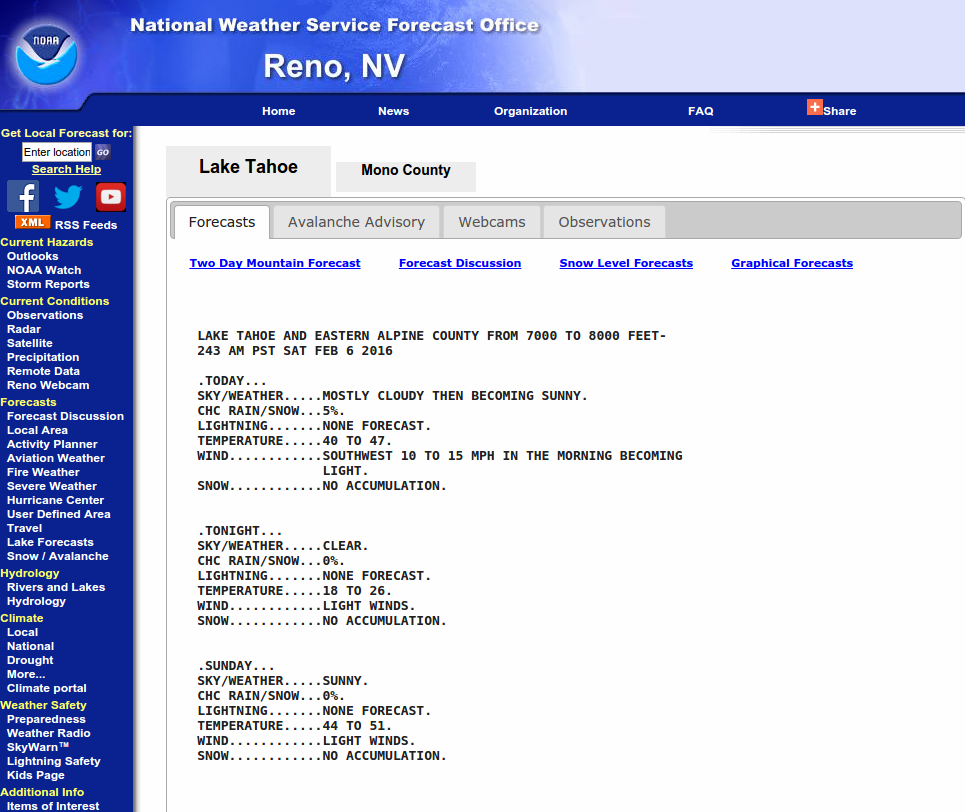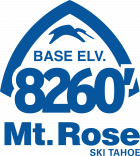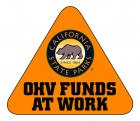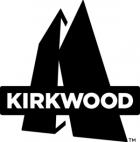
This Avalanche Advisory was published on November 27, 2011:

|
November 27, 2011 at 8:02 am |
|
For areas above 8,000 ft. both above and below treeline, MODERATE avalanche danger exists on slopes 32 degrees and steeper on N-NE aspects. Pockets of MODERATE danger remain in the these areas on the NW and E aspects as well. The avalanche danger is LOW in all other areas. |
|
|
|
Forecast Discussion:
The forecast calls for more warm temperatures today with daytime highs in the low 50's above 7000 ft. A weak and dry low pressure system approaching northern CA has caused the southwest winds to increase over the forecast area. The winds should continue to increase through tonight as this system passes north of the region. Cloud cover should also increase this afternoon and tonight. By tomorrow skies should start to clear again and the winds should shift to the northeast and decrease. Temperatures should also start to decrease.
A thin snowpack ranging from 1-2 ft deep above 7500 ft existed on Rubicon Peak yesterday. A mix of breakable wind, rain, and melt-freeze crusts comprised the snow surface on this peak. Hand pits and observations indicated that the Nov. 18th facet layer does exist on the northerly aspects above 8000 ft. It is not very thick, and the plethora of anchors protruding through it regularly disrupt this layer. The thin snowpack only covers a few of the anchors in this area. Most of the rocks, stumps, logs remain exposed (photo and more info). Other observations around the region have shown that the Nov. 18th facets still remain weak where they exist. In areas where a thicker more developed Nov. 18th facet layer exists on top of slopes with few anchors or where fall snow had covered the anchors, human-triggered cracking, whumpfing, and collapsing have been common.
Avalanche Concern #1: Persistent slabs
The mild weather and lack of new loading has allowed the snowpack to gain some strength. Even the Nov. 18 facets have shown signs of starting to strengthen in some areas; however, persistent weak layers like this one do not stabilize very fast. Often they need to be physically removed by melting or by avalanche activity. If not, they can take several weeks to months to gain enough strength to support a snowpack and a person. The ingredients for avalanche activity will remain with the Nov 18 facet layer as a persistent weak layer and the recent snow on top of it as a slab layer. This combination will allow the possibility of human-triggered avalanche activity to continue today in both above and below treeline terrain. In areas where the snowpack has this structure with a very shallow snowpack, anchors poking through the snowpack help prevent fractures in the weak layer from traveling very far. Of course, these same anchors also tend to damage skis, boards, snowmobiles, and people. The areas that hold a deeper snowpack and better recreation potential also hold the weakest snowpack. The N-NE aspects above 8000 ft. that had the most snow in Oct. and early Nov. represent these deeper and weaker slopes where the thickest and weakest facets exist under the largest slabs.
The bottom line:
For areas above 8,000 ft. both above and below treeline, MODERATE avalanche danger exists on slopes 32 degrees and steeper on N-NE aspects. Pockets of MODERATE danger remain in the these areas on the NW and E aspects as well. The avalanche danger is LOW in all other areas.
Weather Observations from along the Sierra Crest between 8200 ft and 8800 ft:
| 0600 temperature: | 40-43 deg. F. |
| Max. temperature in the last 24 hours: | 49-54 deg. F. |
| Average wind direction during the last 24 hours: | Southwest |
| Average wind speed during the last 24 hours: | 10-20 mph |
| Maximum wind gust in the last 24 hours: | 51 mph |
| New snowfall in the last 24 hours: | O inches |
| Total snow depth: | 7-23 inches |
Two-Day Mountain Weather Forecast - Produced in partnership with the Reno NWS
For 7000-8000 ft: |
|||
| Sunday: | Sunday Night: | Monday: | |
| Weather: | Partly cloudy | Mostly cloudy | Mostly cloudy in the morning becoming partly cloudy in the afternoon |
| Temperatures: | 46-56 deg. F. | 32-38 deg. F. | 43-50 deg. F. |
| Wind direction: | Southwest | Southwest | West shifting to the northeast in the afternoon |
| Wind speed: | 10-20 mph with gusts to 40 mph | 10-20 mph with gusts to 60 mph decreasing to gusts to 40 mph after midnight | 10-15 mph with gusts to 35 mph |
| Expected snowfall: | O in. | O in. | O in. |
For 8000-9000 ft: |
|||
| Sunday: | Sunday Night: | Monday: | |
| Weather: | Partly cloudy | Mostly cloudy | Mostly cloudy in the morning becoming partly cloudy in the afternoon |
| Temperatures: | 43-53 deg. F. | 30-37 deg. F. | 40-47 deg. F. |
| Wind direction: | Southwest | Southwest | West shifting to the northeast in the afternoon |
| Wind speed: | 20-35 mph with gusts to 60 mph increasing to gusts to 70 mph in the afternoon | 20-35 mph with gusts to 70 mph decreasing to gusts to 60 mph after midnight | 15-30 mph with gusts to 50 mph decreasing to 10-15 mph with gusts to 25 mph in the afternoon |
| Expected snowfall: | O in. | O in. | O in. |

